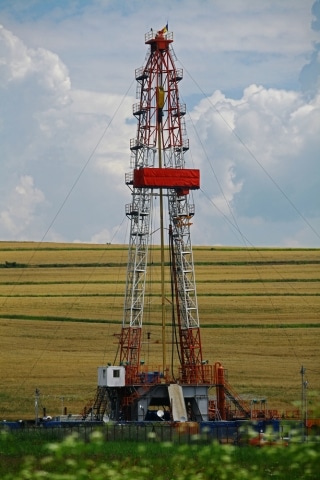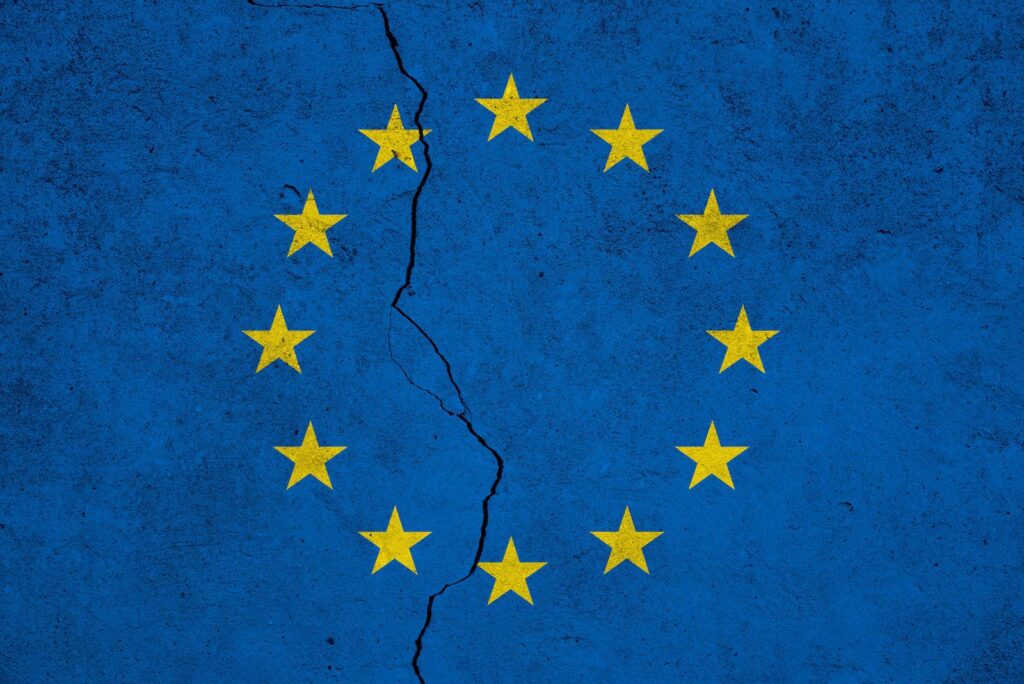This week, New York Governor Cuomo announced that his state would ban fracking, due in large part to concerns about impacts on public health. But right across the border in Pennsylvania, one of the fastest-moving shale booms in the country still proceeds at breakneck speed.
While Governor-elect Tom Wolf campaigned on promises to tax shale gas extraction, evidence continued to grow that Pennsylvania has struggled to police the drilling industry or even keep tabs on its activities. A scathing report issued in July by State Auditor General Eugene DePasquale found that record-keeping was “egregiously poor,” and environmental regulators do “not have the infrastructure in place to meet the continuing demands placed upon the agency by expanded shale gas development.”
For the past several years, Pennsylvania has had a history of lax regulation of the shale rush and its impacts on drinking water. For example, in 2011, the state made national headlines for allowing shale wastewater laced with toxic and radioactive materials to be discharged after incomplete treatment into rivers and streams that were not capable of fully diluting the waste, according to internal EPA documents. Even now, toxic waste from the fracking industry is only tracked via industry self-reporting, which a Pittsburgh Post-Gazette investigation found has led to major gaps in tracking and reporting.
“I think there is a strong feeling in Pennsylvania that what happened in New York is in large part because of the demonstrated damage caused by gas production here,” said Myron Arnowitt, State Director of Clean Water Action.
“It appears that the leadership in New York has been more responsive to what has been happening to Pennsylvanians than the leadership in Pennsylvania.”
Right from the start of the shale rush, the two states took different tacks, with New York maintaining a temporary moratorium until the state understood the impacts of shale gas extraction methods and Pennsylvania allowing drilling to begin before regulations were put in place.
Some environmental advocates are calling for Pennsylvania to undertake a similar review to New York’s.
“A state-wide assessment in Pennsylvania has never been done,” said Mr. Arnowitt. “Again, with a new governor there is an opportunity for some real examination of the facts on the ground here. Even though these potential studies in PA would be after gas production started, it would definitely be better late than never.”
There are also calls for local and regional authorities to intensify their look at shale gas extraction.
“In Pennsylvania, for example, we have been pushing the Susquehanna River Basin Commission to conduct their own cumulative impact study of the effects of fracking on the Susquehanna watershed (which covers New York, Pennsylvania, and Maryland including the Chesapeake Bay),” said Mr. Arnowitt. “Hopefully New York’s decision will help move SRBC to consider the need for an overall look at the impacts.”
Tom Wolf, the incoming governor, did not respond to requests for comment from DeSmog as of press time. “Governor-elect Wolf’s priority is to ensure that Pennsylvania is an energy leader with all Pennsylvanians sharing in the prosperity,” Jeff Sheridan, press secretary for Wolf’s transition team, told Politics PA. “Governor-elect Wolf opposes a ban, and he will work hard to make sure the process is safe.”
Wolf will likely face tough questions in light of New York’s review of the research, which casts doubt on the feasibility of ensuring that fracking is safe.
“Would I live in a community with [fracking] based on the facts I have now? Would I let my child play in the school field nearby, or my family drink the water from the tap or grow their vegetables in the soil?” said Howard Zucker, New York’s acting Health Department comissioner, as he announced the ban. “After looking at a plethora of reports … my answer is no.”
The New York report focused on the difficulty of protecting against a broad range of risks and uncertainties associated with drilling, its cautious wording casting doubt on claims that risks to public health from the process could be effectively managed.
“As with most complex human activities in modern societies, absolute scientific certainty regarding the relative contributions of positive and negative impacts of HVHF on public health is unlikely to ever be attained,” the report says.
“In this instance, however, the overall weight of the evidence from the cumulative body of information contained in this Public Health Review demonstrates that there are significant uncertainties about the kinds of adverse health outcomes that may be associated with HVHF, the likelihood of the occurrence of adverse health outcomes, and the effectiveness of some of the mitigation measures in reducing or preventing environmental impacts which could adversely affect public health.”
Studies from Pennsylvania were cited dozens of times in New York’s review, on issues ranging from air pollution to traffic accidents to emerging health impacts in communities where fracking takes place.
“Given what the New York State Department of Health (NYDOH) has concluded, that ‘the risks are too great’ to allow fracking, we should ask for a point-by-point response to the NYDOH health impact analysis from Pennsylvania’s Gov-elect Tom Wolf,” said Stephen Cleghorn, owner of Paradise Gardens and Farm and former Advisory Council Member for Stop the Frack Attack.
“If the public health risks are too great in NY, then why are they not too great in PA?”
In some ways, the shale rush in Pennsylvania may have served to bear out the fears of New Yorkers.
“Although the natural gas industry will blame environmentalists and activists for the fracking ban in New York, the reality is that the industry itself bears a huge share of the responsibility,” said former Pennsylvania State Representative Jesse White, who represented one of the most heavily drilled counties in the state.
“New York had the benefit of watching everything unfold in Pennsylvania over the past decade before making any decisions about fracking,” he said, “and what should have been a golden opportunity for the drilling industry to brightly shine has instead taken on the distinct look and stench of a dumpster fire.”
New Yorkers have also looked across the border and seen that the economic benefits hoped for in Pennsylvania have failed to measure up to the boasts of drilling advocates.
“Neither job creation nor potential gas production are accurately reported by the industry and sadly, many of our elected leaders have been perpetuating inaccuracies,” economist Janette Barth wrote in a Dec. 4 letter to Governor Cuomo. “While the Governor of Pennsylvania has stated that 200,000 jobs have been created by gas development in Pennsylvania, detailed analysis by the unbiased Marcellus Shale Research Collaborative shows only one-tenth that number of jobs created.”
In large part, the New York State Department of Health report centered on the lack of evidence surrounding fracking’s impacts, and the industry’s inability to demonstrate that the process would be done safely.
This uncertainty is promoted by the shale industry’s unwillingness to share information for scientific review and its use of sealed settlements when lawsuits over contamination are filed.
“The lack of transparency by both the gas industry and the PA DEP, coupled with the continued use of dangerous wastewater impoundments and a refusal to disclose the chemicals used in frac fluid, only serve to delay the inevitable public debate about the real impacts of fracking,” said Rep. White. “The refusal to have an honest discussion about the impacts of drilling could very well end up being more dangerous than any real or perceived impacts from drilling itself.”
“It’s like being so afraid of talking about the flu that nobody gets a flu shot,” he added, “you’re making a problem much worse by pretending it doesn’t exist.”
Despite the lack of transparency, a growing number of Pennsylvanians see downsides to drilling. Nicholas Davitt, of the grassroots group Encouraging the Development of a Green Economy (E.D.G.E.) said that two-thirds of Democrats support a statewide moratorium on fracking and that it is the official platform of the State Democratic party.
“We’ve won moratoriums on fracking in the Delaware River Watershed and in Dimock. We’ve banned fracking in Pittsburgh,” he said. “We need to halt it statewide to ensure a healthy and robust economic future for Pennsylvania and the region.”
Many environmentalists hoped that momentum for grassroots activism would continue to build in the wake of the surprise announcement.
“This victory in New York proves that when people are committed, vocal, and earnest in their pursuit of the truth there is no deep pocket industry chief, lobbyist or politician that can stop them,” said Maya van Rossum, the Delaware Riverkeeper.
“There were many along the way who said we could not secure a moratorium on shale gas extraction in the Delaware River watershed — we did. There were many along the way who said we could not secure a ban on fracking in New York — today we, as a community, have,” she said.
“There are those who say we cannot stop the drilling happening in Pennsylvania or other states across the nation — I believe we will and today’s victory in New York supports that.”
Photo Credit: Color shot of a shale gas drilling rig on a field, via Shutterstock.
Subscribe to our newsletter
Stay up to date with DeSmog news and alerts







